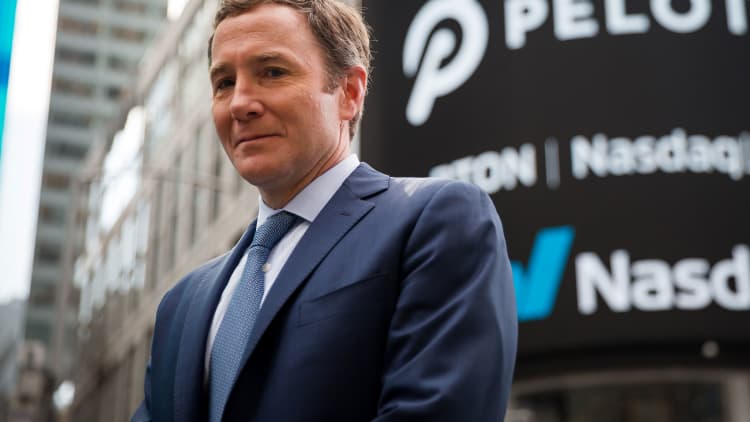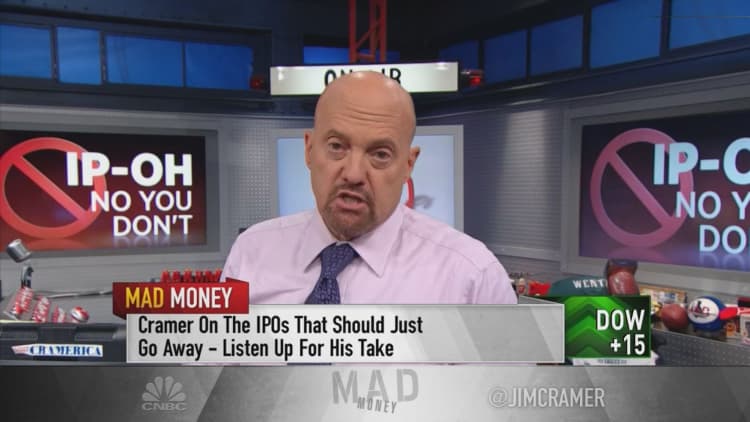The delay of highly anticipated IPOs this year could cause financial headaches for employees who work there.
Start-ups are known to offer equity that can pay off big, if and when they go public. But those opportunities to cash in at WeWork, AirBnb and Palantir — all companies predicted to go public this year — don't seem to be happening anytime soon.
The unknown timing of these initial public offerings and the unknown value of an employee's stake can be a "double whammy" for their workforce, according Stanford Graduate School of Business lecturer, Robert Siegel.
"The psychological impact can be profound — people think 'oh my God I'm rich, or I'm finally going to be able to afford the house, or I'm going to be able to send my kids to college," said Siegel, who's also a partner at XSeed Capital. "It's not real until you have the ability to convert your equity into a different currency."
In the case of a WeWork IPO, employees' net worth on paper was looking to be at least 70% below where the company last raised money. WeWork had planned to go public earlier this year, but pushed that back after weak demand in public markets, and the removal of CEO and founder Adam Neumann. Home-sharing company AirBnb's highly anticipated IPO is slated for next year, and Peter Thiel-backed data analytics start-up has yet to announce plans.

Companies delaying IPOs, in some cases staying private for a decade, are becoming cautionary tales for those on the job hunt. For executives, the stakes are often higher. Will Hunsinger, CEO of San Francisco recruiting firm Riviera Partners, said the equity options are used by companies as a long-term incentive, and a retention tool.
"Certainly there are golden handcuffs," Hunsinger told CNBC in a phone interview. "These folks who have options do the math to see what the valuation is going to be at an IPO — it's important financial windfall."
From a recruiting perspective, Hunsinger said it's increasingly hard to get top talent at a private company to consider other options. That potential upside is causing C-level executives to stay and "play through it," even if the IPO timeline is unclear.
"They have to unlock that wealth before they can get out," he said, adding that companies recruiting them have to consider if they can afford to "make them whole" by paying enough to get them to walk away from stock options.
Rich on paper
The amount of equity someone gets depends on the company and its life cycle. Executives getting in at an early stage are often trading cash paychecks for a longer term value. Gad Allon, professor of operations, information and decisions at Wharton School of the University of Pennsylvania said the "trade off" of going to an early company is clear.
"If you join a Google, Facebook, or Amazon, you get a pretty much secure paycheck, you know exactly what you're going to get. What you're not getting is the upside," Allon said.
That trade off is top of mind for engineers, who have their pick when it comes to jobs, according to Jason Stomel, founder of tech recruiting firm Cadre. Silicon Valley start-ups are desperate for engineering talent, especially for someone who was among the first 100 or so employees at a name like Pinterest or Uber. These candidates are increasingly negotiating new contracts where their new employer bakes the cost of buying them out of their stock options.
"The war for talent is so crazy right now that companies are willing to throw money at candidates to make it happen," he said.
The upside often comes in the form of stock options. If a start-up employee does decide to leave, they typically have a three- to six-month period to exercise the options. Otherwise, they expire and are worth nothing. These "options" to buy the stock are often well below where the company would theoretically go public. There are two implications: the person has to come up with the cash to actually buy those options, and it's a taxable event in the form of a capital gain.
"The hardest thing for employees to figure out right now is should they exercise their options if they choose to leave," Stanford's Siegel said.
C-suite executives often use an attorney to figure out their employment contract and figure out how to exercise their stock after they leave. But an engineer, for example, might have less equity and doesn't have leverage in negotiating stock options. As delayed IPOs become more common, Cadre's Stomel said engineers are getting savvier before they sign on the dotted line.
"Start-ups would dangle equity as if it was like some great thing but now they're getting really smart— they're asking for the right price of that stock," he said. "They're asking for the valuation and a lot more detail that will help them make a more informed decision and compare apples to apples."
Graduate business students are also taking the IPO market into account when considering job options. Siegel said in the past five years, he has noticed a "more grounded approach to looking at some of these opportunities."
"Five years ago, Google was great and a lot of fast-growing start-ups were great. But I think the students are far more realistic about some of the challenges of gravity and valuations coming back."
This year's IPO class has faced a harsh reality on public markets. Uber and Lyft, which both went public this year posted their lowest close ever this week. Peloton had a lackluster debut out of the gate last week. Wharton's Allon said by the time these names go public, much of the the value has already been taken by venture capital and private equity. As a result, there is "very little residual value" left for IPO investors.
Based on that, Siegel said the chances that companies will all of the sudden rush to go public are low.
"Gravity arrived with a vengeance in the last month and the public markets can be very unforgiving if they don't buy into the story," he said. "Markets don't believe the unit economics of these companies are nailed down, that's what we're seeing right now."



